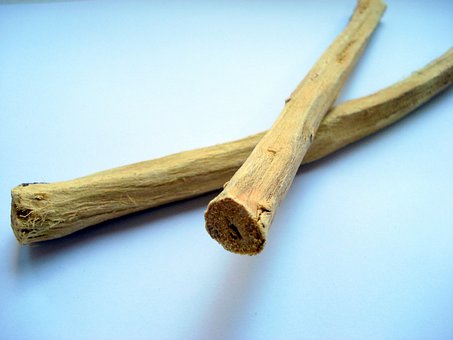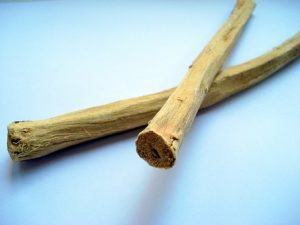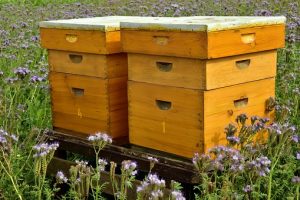Prepper oral health: How to clean your teeth and prevent cavities when SHTF

Oral health is a crucial part of your preps. When SHTF, you’ll be grateful that you took proper care of your teeth and gums.
Cavities and broken teeth can be painful and even dangerous. In a survival scenario, you won’t get an appointment with the dentist. Taking care of your oral health is key to preventing oral disease and other health problems that can be painful and even result in death. (h/t to ModernSurvivalOnline.com)
Why good oral hygiene is important
Before SHTF, you should prepare for long-term survival scenarios by stocking up on necessary supplies. If you’re worried about running out of toothpaste, learn how to improvise.
Oral care might seem like something you can ignore when SHTF, but if you put off brushing your teeth long enough, things are going to go bad. You might develop an infection bad enough to kill you.
Poor oral hygiene can cause bad breath or discoloration in your teeth. It can also cause these health problems:
- Abscesses
- Cavities
- Gingivitis
- Lesions
- Periodontitis
- Thrush
Cavities can eventually reach and damage the nerves in your teeth and the flesh of your gums. This will first cause increased sensitivity when eating or drinking hot or cold foods or beverages. Next, it will progress to intense pain.
An abscess may form as damage to the pulp and the roots of the tooth progresses. An abscessed tooth or injury in the mouth may trigger an infection in the bloodstream and even in the brain. If that happens in the middle of a survival scenario, it could lead to your death.
Even if SHTF, you should keep on brushing your teeth to prevent these dangerous oral health problems.
2 Methods for maintaining oral health post-SHTF
Taking care of your teeth in the wild is similar to taking care of them in your bathroom at home, except for one thing: In a post-SHTF scenario, you won’t always have running water or electricity.
This will naturally change your oral care routine a little bit, but the goals remain the same. Brush your teeth to scour away food residue and the beginnings of plaque, and clean between the teeth to prevent the buildup of plaque and bacteria that can damage your teeth and eventually hurt your gums.
If you can do these two things regularly, you can prevent or slow the onset of oral maladies and diseases.
There are two ways to address this problem:
Modern methods
Before SHTF, pack oral care items like floss, toothbrush, toothpaste and more in your survival kit or bug-out bag. This will make it easier to keep your teeth clean even if you’re bugging out.
Improvised methods
If you run out of supplies, you can improvise. Learn how to use natural materials and various herbs or plant matter to keep your teeth clean and your gums healthy.
While a branch and some chewed-up leaves aren’t as effective as toothpaste and a toothbrush, they’re better than not doing anything to keep your teeth clean. While it is best to use the right tools for any job, when SHTF you might need to resort to both methods.
If you know which plants and herbs to use, you can still keep your teeth clean even without toothpaste and a toothbrush. (Related: Prepper tips: 10 Ways to maintain oral hygiene in the wilderness.)
Preparing a modern oral care kit for your survival gear
Having a modern oral care kit in your survival bag can make it easier to maintain optimal oral health.
Here are some things to include in your hygiene kit:
Clove oil
Clove oil is a powerful analgesic and antiseptic with many uses for oral care. For centuries, cloves have been used for natural pain relief. Historically, treatments called for inserting the clove into an infected tooth or cavity.
Cloves contain an active ingredient that numbs the skin it touches, which may provide temporary relief from a toothache. Now, modern usage of cloves calls for clove oil, which is the extracted, concentrated product from the plant.
Follow the steps below to learn how to use clove oil for a toothache:
You will need:
- A bottle of clove oil or powder (note that clove powder meant for baking isn’t as effective as clove oil)
- Cotton swab or cotton ball
- Carrier oil (e.g., almond oil, coconut oil or olive oil.)
- A small dish
Steps:
- Collect your supplies and ingredients. Squeeze a few drops of clove oil with one teaspoon of olive oil into the dish.
- Soak the cotton swab or cotton ball in the diluted clove oil.
- Gently swipe the cotton swab or ball around the affected area. You can also place the cotton ball over the area.
- Let the oil sit for five to 10 minutes until it starts working.
- Reapply the clove oil mixture every two to three hours for relief.
Floss
Many people often forget to floss, but flossing regularly helps keep your teeth clean. If you don’t like using regular floss, get floss picks instead. If you have regular floss, you can also use it as makeshift cordage when SHTF.
Temp-tooth
The temp-tooth is a temporary tooth replacement kit that is a type of moldable, sculptable plastic bead. The material becomes pliable after it is soaked in hot water. Use Temp-tooth to craft fixtures or temporary replacement teeth in a pinch.
Toothbrush
You can save space in your kit by getting a compact camping toothbrush. Alternatively, you can buy a regular toothbrush and cut the handle down a little bit to save space.
Toothpaste
Use any toothpaste you want, but avoid any product with fluoride or aggressive whitening toothpaste that can be a little hard on your gums over time. If you are bringing a full-sized toothpaste tube, store it in a ziploc bag to contain spillage.
Wool gauze
Wool gauze or a small ball of wool made from strands can be used to form compresses or temporary fillings when used with clove oil. Wool has its own antibacterial properties that make it helpful for this application. For temporary use, you can get standard cotton gauze balls or pads.
Tips for improvising oral care when SHTF
Even if you don’t have the items listed above, you can keep your teeth clean using other tools and ingredients.
Brush with a branch
If you don’t have a toothbrush, brush your teeth with a green branch from a non-toxic softwood tree. Cut the branch down to about half the size of a pencil, then shuck the bark off of it.
Carefully chew on the end of it and pass it back and forth between your teeth until the end begins to fray apart and becomes fuzzy. You’re done when the branch looks like a makeup brush. Use the fuzzy end to “brush” your teeth.
Floss with thread
If you don’t have floss, use a length of clean and thin, strong thread. You can use either a single strand from the internal guts of the paracord or a strand from any frayed end of fabric or tarp.
Whittle a toothpick
Whittle a small branch to clean between teeth. You can also use thorns or spines from a non-toxic plant. Make sure the plant you get thorns from is non-toxic so it won’t cause a reaction upon contact.
Herb toothpaste
Use wild mint or cilantro as a natural toothpaste substitute. Chew some wild mint or cilantro until you have a paste that can help kill germs and freshen your breath. If you have salt, use it sparingly to help scour film off of your teeth and kill germs.
Treating cavities, broken teeth and other oral health issues
Dealing with major oral problems in an austere environment can be difficult. A major cavity, broken tooth or another mishap in your mouth will cause pain with every sip of water and mouthful of food.
Before SHTF, it’s crucial that you learn how to deal with these mishaps even without modern tools. With only a handful of supplies, you can make sturdy, semi-permanent fillings that can greatly reduce or even eliminate the pain from a cavity or a tooth that isn’t broken too badly.
To create a semi-permanent filling, use a bit of pine pitch to carefully seal over the cavity or the broken tooth.
Visit HolisticDentistry.news for more articles on how to maintain proper oral health when SHTF.
Watch the video below to know how to improve oral health with licorice root.
This video is from the Groovy Bee channel on Brighteon.com.
Source: https://www.naturalnews.com/2022-08-08-how-to-clean-teeth-prevent-cavities-shtf.html









